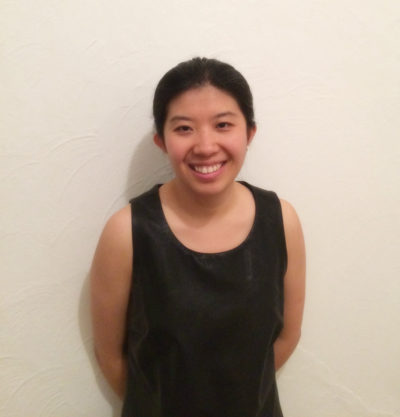Often a very serious story has begun with a joke. If a joke or anecdote sticks in my mind for years I know there must be something in it that means something to me that I am not conscious of. This is what I mean when I say I feel one learns about oneself from writing fiction. – Peter Taylor
I would like to use one word to describe my pedagogical approach to teaching playwriting (creative writing): springy. My primary teaching goal is to create a learning space for students that features great elasticity or resilience.
The courses I design have clear steps that build up to a learning goal for students. I divide one topic into small organized sections. The course I taught at Carnegie Mellon University, Introduction to Playwriting, combines a craft seminar and a writing workshop. It starts with reading essays on craft, including excerpts from Lajos Egri's The Art of Dramatic Writing, articles from the journal of the Dramatists Guild of America, The Dramatist, and even playwright Young Jean Lee's Facebook postings about her latest play, Straight White Men, which provide a great example of how the playwright develops a play from scratch to a full production. Armed with knowledge of basic playwriting terminology and skills, students dissect examples of effective plays from recognized (and sometimes provocative) playwrights—and move from there to in-class writing exercises and assignments.
Along with guiding students to polish their writing skills step by step, I bring an aspect of landscape to my class. In my playwriting workshop, the meaning of landscape is two-fold: 1) students should look at theater as a space which they can physically and therefore emotionally respond to, where they experience the collisions of sound and sense that can swerve thought and communication in new directions, where they should be aware of the presence of audiences and also each other; 2) students should not only be aware of the space around them, the world inside and outside the classroom, but also the internal space within themselves, which enables them to engage in conversations pertinent to their lives, to examine the kinds of messages they receive everyday, and to invent ideas that could shape the world around them.
The training I have received as an actor and a director has been very helpful. I borrowed an exercise from Erik Ehn's acting workshop: create a story with the random words we pick up from our daily life and act it out silently. Another exercise I used in my class is to ask students to “eavesdrop on” a conversation between strangers in public, like those they sit next to in a café or on a train. Some students found the experience unexpectedly entertaining and inspiring. Some students were surprised by what they had heard and turned it into a scene in their plays.
The writing workshop I led at Carnegie Mellon could have been intimidating for students to share their works and receive feedback on their writing, since my students were from different disciplines from dramaturgy to engineering, so they had not known each other before this class. On the first day, in order to diffuse the pressure, I started my class with a “wacky” exercise: ask students to share what cracks them up. My idea for this was that what a person finds funny and how he reenacts the moment speak volumes about his personality, quirks, and comfort zone. Students shared funny moments from their lives and were given twenty minutes to write short comedy scenes or short essays about their perceptions of humor. Then students shared what they came up with and some chose to act out the short comedy scenes they wrote. This exercise was also helpful to encourage students to see that different audiences experience one's writing in different ways, that we consciously or unconsciously choose to address particular audiences when we write, and that these choices influence our choices.
My pedagogical framework is one that promotes student autonomy and responsibility, and engagement in creative, intellectual and analytical tasks. I hope students in my classes expand their knowledge of the range of human achievement in theater, learn skills they can apply in their writing and thinking for the rest of their lives, and see the potential for creating a theatrical space as a personal journey, a risky exploration and a social act.
Writing exercise:
An extraterrestrial life form has contacted us.
It wants to know: ”What does it mean to be human? 」
Your job is to answer this question by writing short stories.
Each story is three sentences.
Feel free to send it to Wei He's E-mail or comment below.
You are also welcomed to drop by her office.
Let's start thinking and writing creatively.
Editor's Note: This article is published on behalf of the author.
Below is the introduction of the author.
Bio-Wei He
Wei He is a bilingual playwright and fiction writer. She holds an MFA in Dramatic Writing from Carnegie Mellon University School of Drama. Her fiction, poetry and plays have been published in the United States, Mainland China and Taiwan. Her plays and operas have received productions and readings in Pittsburgh, Chicago, Seattle and Buffalo. Now she is a lecturer in English Department at CUHK, SZ and is proud of her secret recipe of Sand-Wei-ch.
Office phone number: 0755 – 84273082
Office: 419, Zhixing Buiding
E-mail: [email protected]
If you are interested in Creative Writing or want to show your articles to Miss He, feel free to drop by her office or send her an e-mail for consultation.

Leave a commentAnonymous